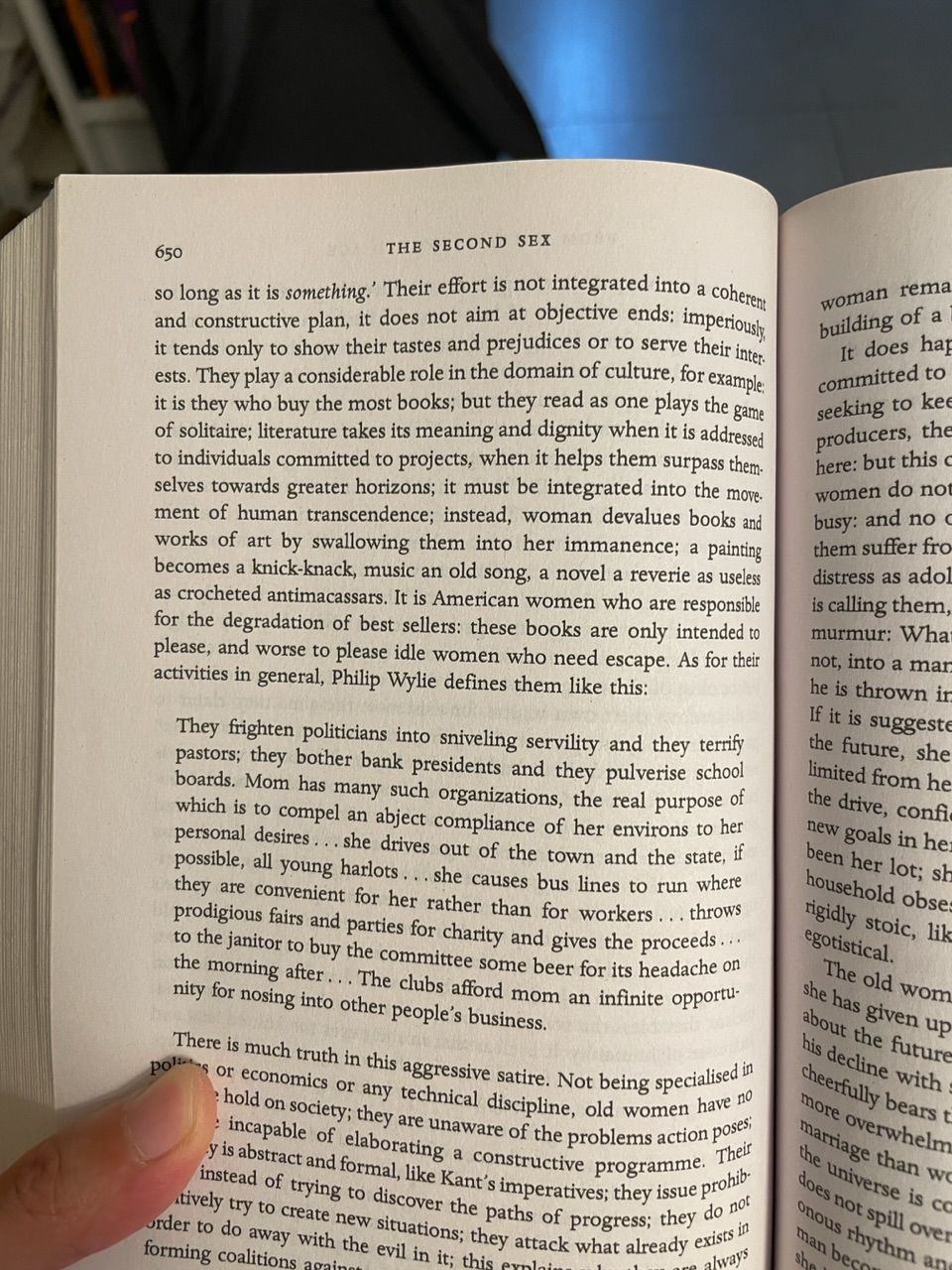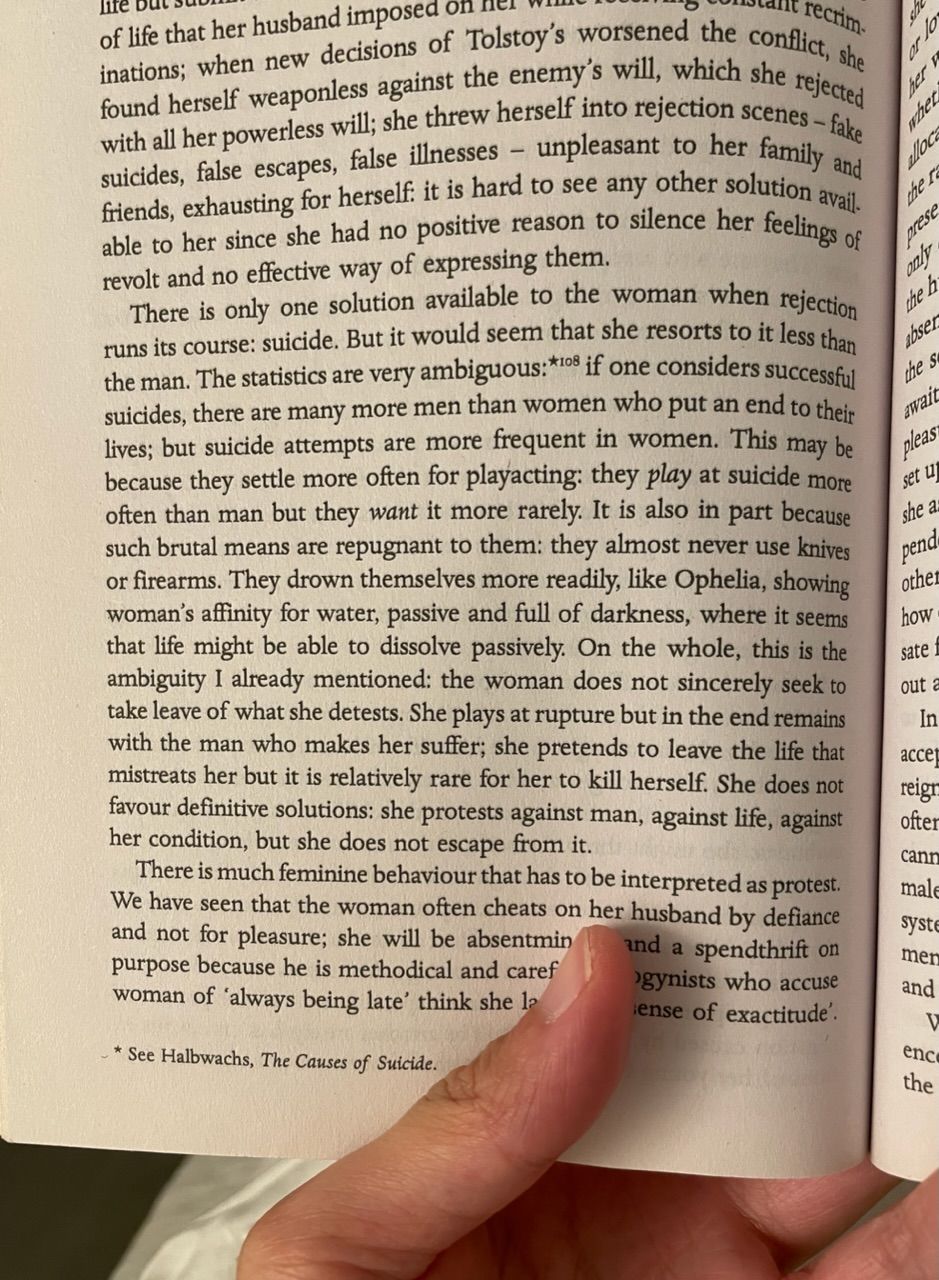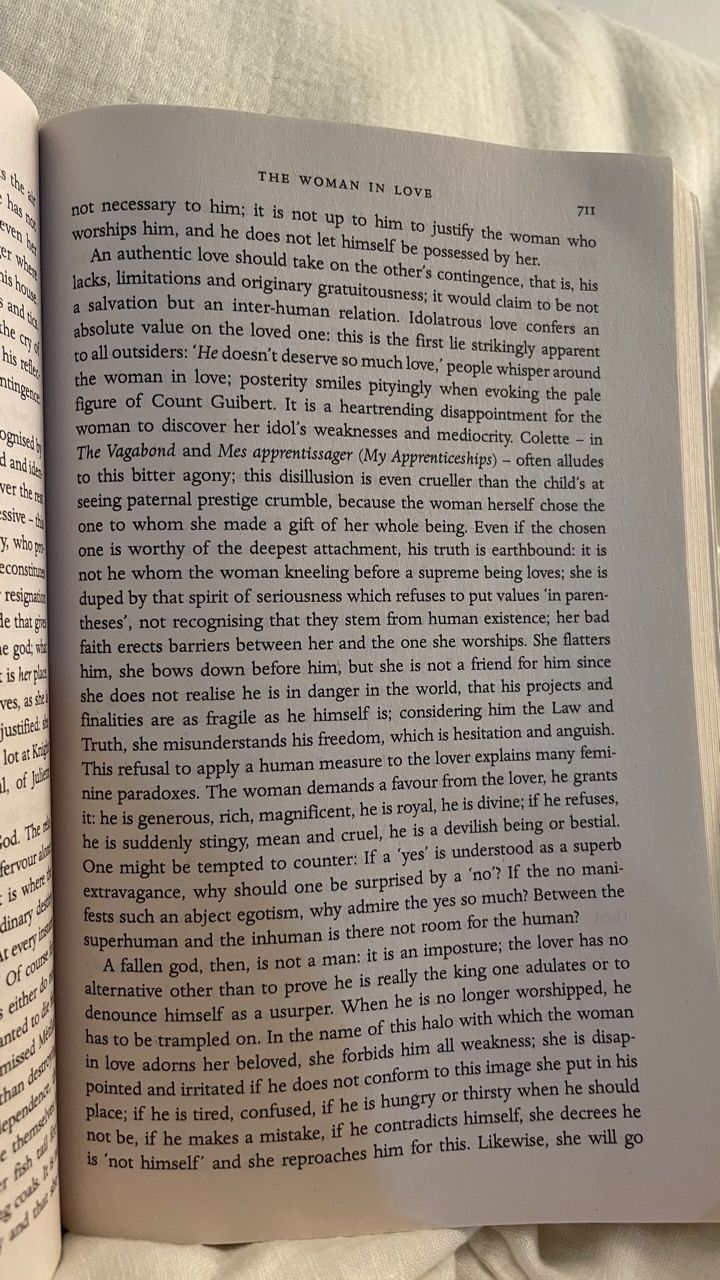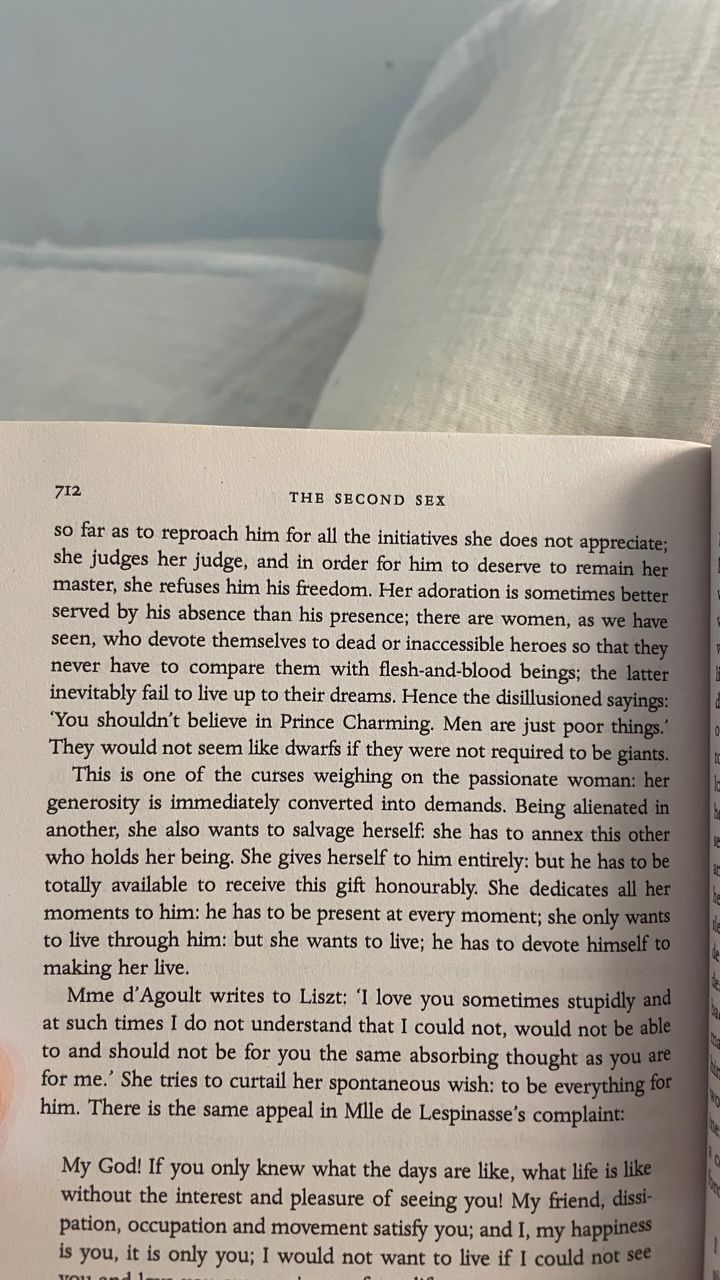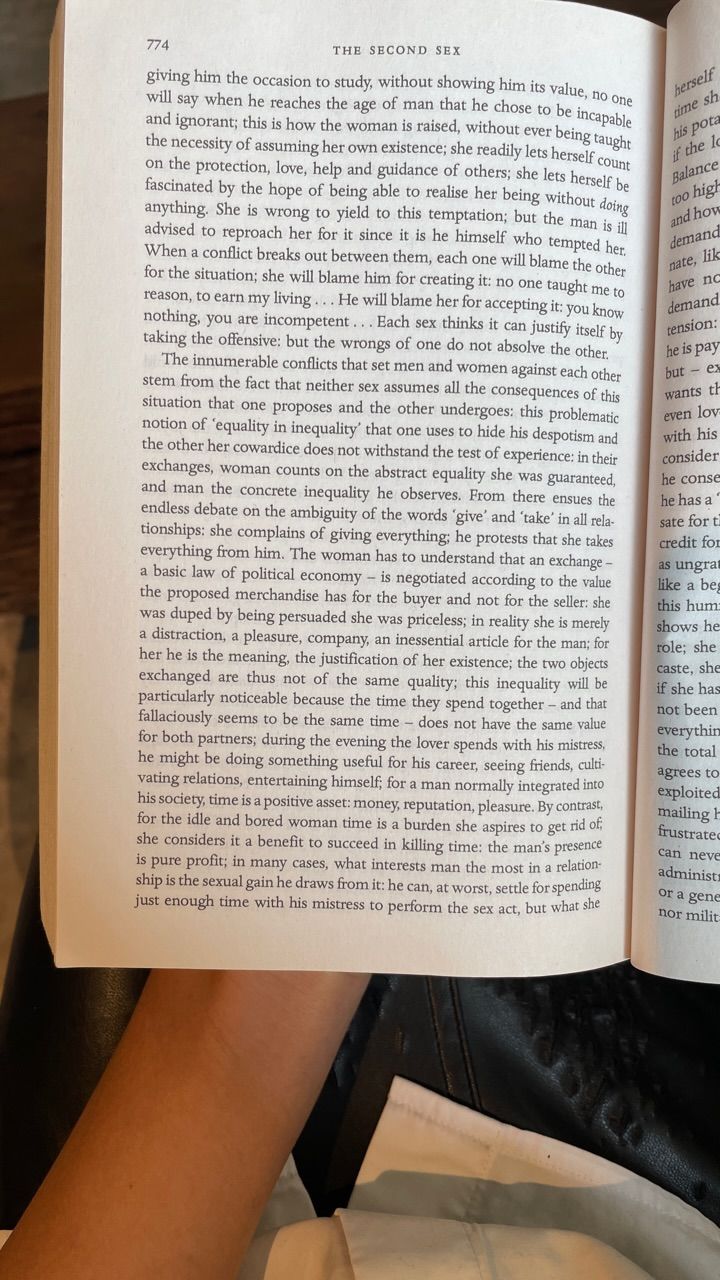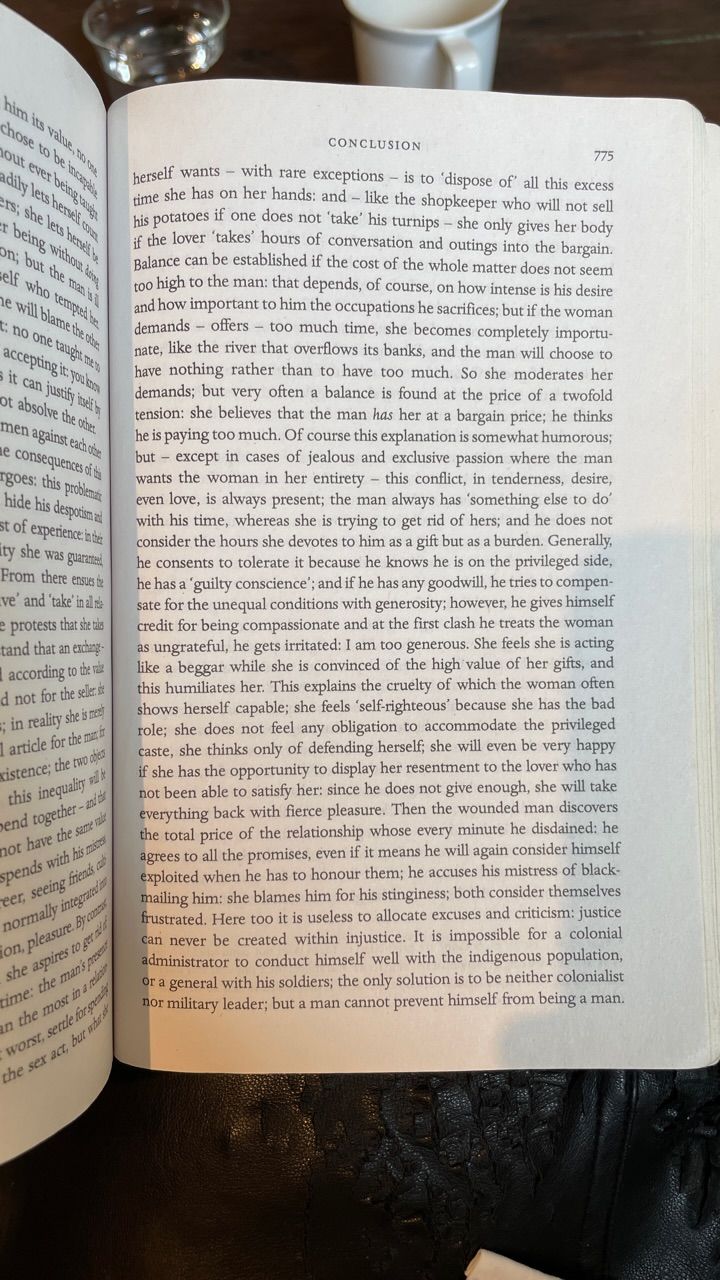You should read The Second Sex
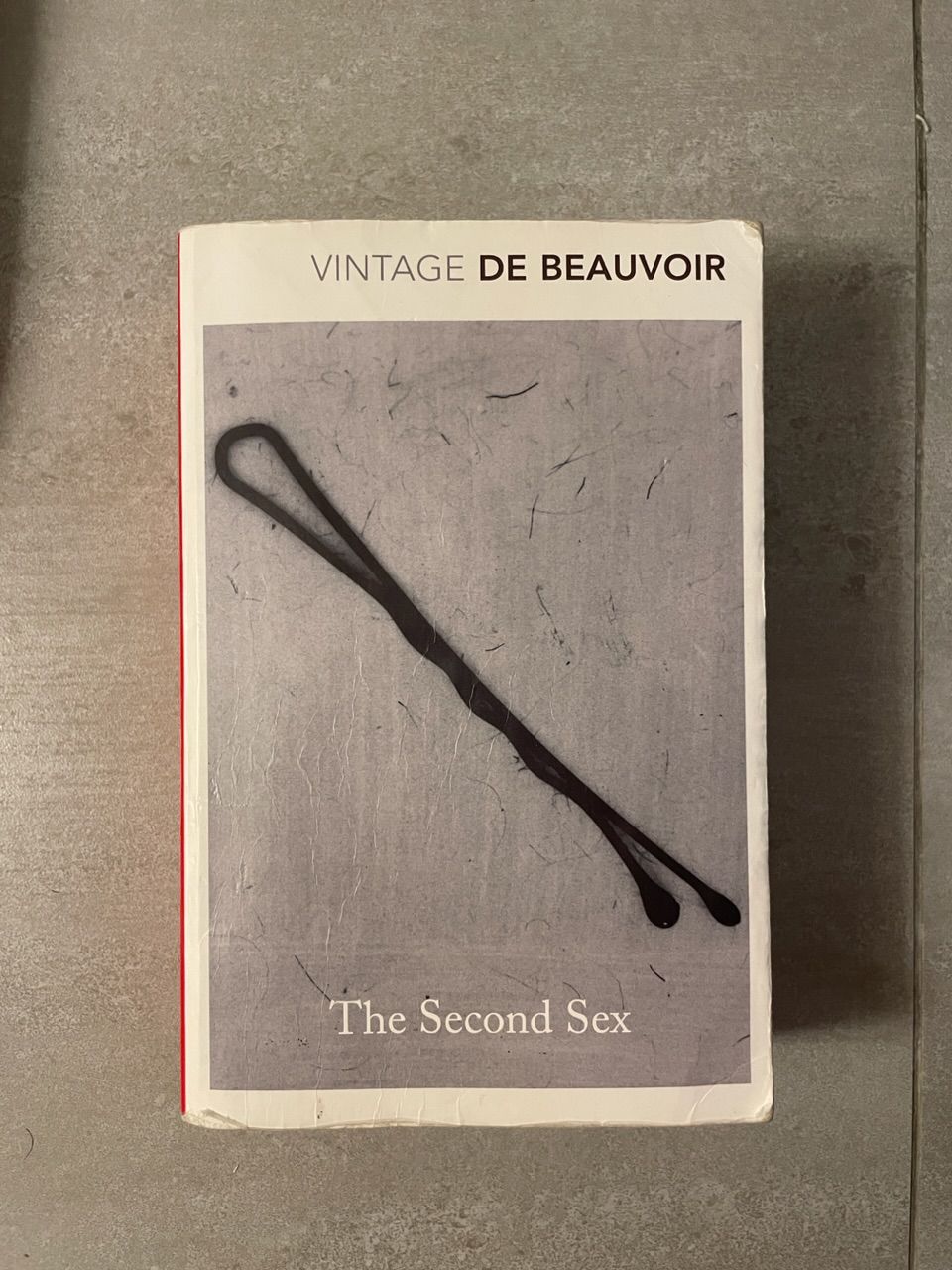
I got into feminism when I was a teenager thanks to tumblr, I continued to consider myself a feminist through young adulthood and university, where I even joined the feminist society, only to leave after the first meeting when I realised how beholden the members were to tumblr theory and Facebook comment section analysis. The ideas of feminism continued to interest me, I continued to consider myself disadvantaged by society, but by the time I started working full-time, alongside women and men from all classes and walks of life, I came to the banal realisation that life sucks for everyone.
The global feminist movement in the 21st-century seems to be following the same decline, with most educated women growing disillusioned by the movement and by themselves. It doesn’t help that the movement’s most vocal spokespeople are celebrities, minor politicians, rich kid Twitter activists, and other social parasites with nothing to do except talk about themselves and no other ambition in life aside from promoting their personal brand. A lot of women are realising that something’s not right about the liberal, American, placard-waving feminist view of the world. This view doesn’t explain, for example, why women are so batshit crazy in every day reality. Why do they nag so much, why do they keep petty grievances, why can’t they let things go, why don’t they ever just say what they mean? Women’s outbursts may not reach the violent levels of men, but daily they are prone to more arbitrary, moody, and petty actions that can make them unbearable to live or work with. Across various professional fields, especially those of film and music, small achievements by women receive exaggerated amounts of attention simply by value of having been achieved by a woman. Some vague discontent keeps nibbling at our minds, we know that we are not really free, that we are not happy, that our inhibitions are greater than men’s, that men actually do accomplish more than we do, and this discontent causes us to act out in retarded ways, but a vague notion of “patriarchy” just isn’t a good enough answer anymore.
Simone De Beauvoir’s The Second Sex is the book I would have wanted to spend my whole life thinking through and writing, but the bitch did it first, in the fucking Forties! Many first wave feminist writers now seem outdated, many second wave feminists seem uptight and aggressive, many third wave feminists read like they couldn’t even pass high school English. Simone transcends them all in her fierce insistence on holding women to account over their own complicity in their oppression, which is the missing link that would explain liberal feminism’s irrelevance. The Second Sex demands that women take themselves and their freedom seriously. Its most lasting value is how it illuminates women’s own faults of stupidity and narcissism and explains them as consequences of their situation, instead of placing blame solely on the situation, and condescendingly seeing women as mere victims buffeted around by circumstance.
As daunting as the book looks, and as unattractive as the words “feminist theory” now sound, it is, in reality, easy and delightful to read. The beautiful concision and subtle drama of her writing made my mind swirl with the possibilities for creatively expressing philosophy. It is cold in its discipline, structure, and citations, but warm with the vivacity of a woman who takes herself and her subject seriously. In certain sections which border on scolding rants, she talks like how some cancelled men in the 21st century talk. With blistering bluntness she eviscerates female narcissism, melodrama, idleness, and bad faith reasoning and shows how they are consequences of women’s own bored frustration over their lot in life. In a rather funny chapter on “The Lesbian”, she basically implies that lesbianism is an unconscious choice taken by women who cannot reconcile themselves to the insensitivity of patriarchal sexuality.
It’s a book that I would have been honoured to spend my entire life writing. Her labour is a powerful testament to willpower and freedom, an insistence on the need to take control over one’s own life. Women are bored and frustrated because they are kept in a state of perpetual infantilism, as individual subjectivities who are constantly treated as objects, and who have grown up internalising the sense of themselves as objects. She views female behaviour primarily through the lens of psychoanalysis, locating the source of women’s frustrations as mental frustrations in reconciling their their private selves and individual wills with the face they must present to men and wider society. In this, it is more relevant to middle class women: women whose primary frustration is that they cannot express themselves as individuals. There are some caveats made here and there in allusion to working class women — women who spend much of their whole lives working and caretaking that they don’t even have the time to think about themselves as individuals; individuality is a myth they gave up a long time ago, or never believed in — but most of the book assumes that women are still free to contemplate and fix their situation in life. For the female labourer who subsumes her individuality within the needs of others, they might find the book’s prolonged meditations on feminine vanity and boredom as problems they wish they could have instead.
She opens wider vistas for how life could be lived. The very accomplishment of her book is a testament to how much an individual could achieve, if they dared to do so. Every thing that seems like a given is merely an illusory inhibition that can be shattered through willpower and mental fortitude. Funnily enough it is this that proved to me that the category of woman does still exist, that women everywhere do still suffer within a secondary status, and that feminism as a political stance still has relevancy, though the realities and complexities of female oppression are obscured by the superficial blame game reasonings of liberal activists and media. Willpower is everything, but women everywhere are made to doubt this natural, existing power that is theirs for the taking. The demands of society and the biases of their upbringing blind them to the largeness of the world. Every woman should read this book to come to a better understanding of herself. As much as I think men would stand to benefit from reading this too, especially in the department of being more sensitive, realistically I think their eyes would glaze over before they even finish the blurb on the back. The fact that The Second Sex remains widely in print and even paraded on book displays alongside pop-philosophy and pop-science books suggests to me that nobody actually reads this. Its ideas and tone are anachronistic in today’s amelioratory society. But the good thing about this is that the book is still easy to find in any bookstore. Look, if you ever see The Second Sex on some woke book display, it’s the only book among the selection that’s worth reading.
Some selections:

